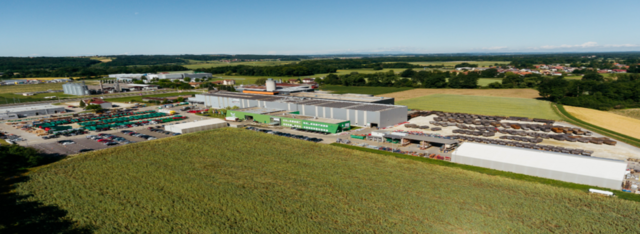
Transform.Industry: Guiding the green transformation for Styrian SMEs
The Institute for Innovation and Industrial Management of the Graz University of Technology and the Wegener Center of the University of Graz have jointly developed a guideline for SMEs to implement greenhouse gas (GHG) accounting in combination with energy flow analyses in a practical, traceable and transparent way. Data was collected in cooperation through a project with Orasis Industries Holding GmbH. Due to the open-mindedness of the owner of Orasis Industries Holding GmbH, the data can be used transparently. As part of the project, Scope 1 and 2 GHG emissions were gathered completly, and Scope 3 GHG emissions were also collected partly. This leads to an emission value of 9,209 t CO2-eq. As a result, the most energy-intensive sites were identified. With the help of an energy flow analysis, an emission reduction potential of 6,643 t CO2-eq was identified. For example, simply switching off the compressed air network between shifts will reduce costs and GHG emissions (about 16 t CO2-eq/year).
Establishing measurable sustainability within the industry is a key step toward achieving the EU climate targets.
The pressure on companies to act sustainably is increasing. On the one hand, there is a "market pull" (changing demand behaviour of consumers), on the other hand, there is a regulatory push (e.g. requirements of the European Union). In SMEs are usually only a few or no employees responsible for sustainability. This poses a great challenge to the companies in implementing the requirements for GHG reduction. By combining sustainability with the principles of open innovation (qualified people, role of R&D, competition, intellectual property within the company or externally), companies can respond to the "market pull" and regulatory pressure. Additionally, monetary or non-monetary value is generated, contributing to the achievement of global climate goals. Transparent handling of climate-relevant data by companies (e.g. carbon footprint) helps consumers understand, which positive aspects a company can contribute to climate protection, but also which challenges they face in connection with the goal of climate neutrality. Based on the project with Orasis Industries Holding GmbH, it could be shown that transparent and comprehensible sustainability approaches are created through the transfer of knowledge from the outside to the inside as well as through the transfer of data from the inside to the outside. Through open innovation principles in sustainability, it is possible to create transparent and traceable data and generate added value for the environment, society, and the company. This cooperation laid the foundation for the creation of a guideline, which will be made available to SMEs to support them on their way to balance sheet carbon neutrality.
The goal of the project is to create a role model to establish Open Sustainability within the industry.
This creates a pioneering role for Styria as a promoter of "climate-neutral" and energy-efficient KUMs and a best-practice example for a possible further roll-out on an Austrian level. It significantly enables the preservation of Styrian export markets. The tool also allows consistent planning of the companies on the way to achieving "climate neutrality", which among other things should also increase competitiveness.
